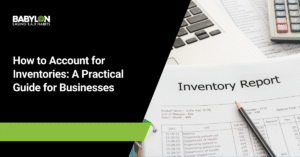Navigating the intricacies of eCommerce taxes is a must for online businesses, as they are still obliged to fulfill their financial obligations just like any traditional brick-and-mortar establishment. Non-compliance with tax laws can lead to significant legal issues and financial penalties, underscoring the importance of understanding and adhering to these regulations.However, navigating the complex web of eCommerce tax can be a daunting task for many business owners.This blog post will discuss the different eCommerce taxes in the Philippines and how online businesses can navigate their tax obligations to remain compliant and financially healthy.Understanding Ecommerce Sales Tax in the Philippines In the Philippines, eCommerce sales tax involves several components depending on the business’s annual gross sales.Income TaxIf your online store’s yearly sales are between PHP 250,000 and PHP 3 million, you have choices for handling income tax.Under the TRAIN law, you may opt for a flat 8% tax on gross sales above PHP 250,000 but not more than Php 3 million or the graduated income tax rates based on net income ranging from 0% to 35%.Quarterly Percentage TaxIf your online store earns less than PHP 3 million annually, there’s no VAT to worry about unless you are VAT-registered, but you do have to pay quarterly sales tax or other percentage tax in addition to your income tax obligations.The other percentage tax (OPT) was reduced from 3% to 1% during the pandemic. However, effective 01 July 2023, taxpayers must already pay the original tax rate of 3%.Value Added Tax (VAT)If your online store reaches yearly sales above PHP 3 million, you must pay a VAT of 12% on the total sales amount of your products or services.Certain transactions and services may be exempted from VAT if they fall under the categories identified by the Bureau of Internal Revenue (BIR). Businesses, however, still need to submit the necessary documentation to the BIR for evaluation.By familiarizing yourself with these regulations and ensuring compliance, you can effectively manage your eCommerce sales tax obligations and avoid potential penalties.Problems Online Businesses Deal with Regarding Taxes Dealing with taxes can be tough for online businesses, especially in the Philippines. Here are some key challenges you would face:Complex Tax RegulationsUnderstanding and complying with the intricate tax regulations of the Bureau of Internal Revenue (BIR) can be challenging for online businesses. Navigating through various tax obligations and requirements can be overwhelming, particularly for those with no knowledge of taxation.Record-Keeping ChallengesOnline businesses can find it challenging to maintain accurate and detailed records of digital transactions, sales, expenses, and financial activities. Without proper accounting systems, tracking and managing digital transactions effectively for tax reporting purposes can be a significant challenge.Withholding Taxes ComplianceDetermining when and how much tax to withhold from payments to employees, freelancers, or service providers can be complex for online businesses. Violation of withholding tax obligations can result in penalties and legal consequences.VAT Threshold ManagementMonitoring revenue levels and determining whether an online business exceeds the VAT threshold of PHP 3,000,000 in a taxable year can be challenging. Failure to register for VAT when required or incorrectly assessing VAT obligations can result in non-compliance penalties.Registration Process HurdlesThe registration process with the BIR can be inconvenient and time-consuming for online businesses. Gathering and submitting required documents, navigating bureaucratic procedures, and paying registration fees may pose challenges, particularly for new entrepreneurs.5 Steps to Ensure Your Ecommerce Sales Tax Compliance To ensure your online business stays on the right side of the law and maintains financial stability, consider these five essential steps:Understand the Tax System for Online Businesses
Register for BIR and SEC Compliance
Configure Sales Tax Settings in Your eCommerce Platform
Keep Accurate Records of Sales Tax Transactions
File BIR Returns and Remit Tax Payments on Time






